Category: Biomedical Engineering
-

Praveen Arany, University at Buffalo – Light Treatments – Myths and Facts
There are always new wellness treatments, but should we believe the hype? Praveen Arany, associate professor of oral biology and biomedical engineering and surgery at the University at Buffalo, examines one. Dr. Arany trained as a dentist, oral pathologist, and biomedical engineer. He served as an Assistant Clinical Investigator at NIDCR/NIH, Bethesda, from 2012 to…
-
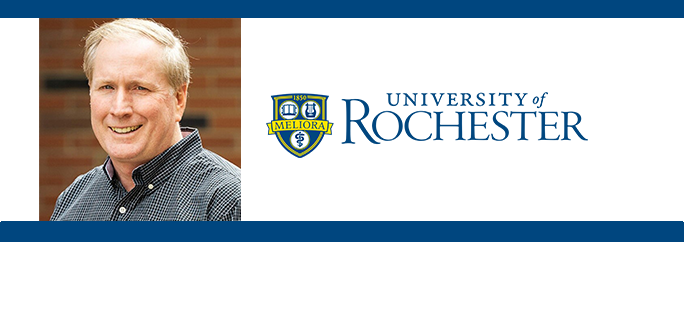
James McGrath, University of Rochester – Tissue-on-chip technology holds promise to reduce animal testing
On University of Rochester Week: Can computers take over and put an end to animal testing? James McGrath, William R. Kenan, Jr. professor of biomedical engineering, examines this question Since 2001, James McGrath has been on the Biomedical Engineering faculty at the University of Rochester and served the department for over 10 years as the…
-

Tracy Hookway, Binghamton University – Cell Research Could Help Us Better Understand How Our Hearts Beat
When it comes to the heart, we have much research left to do. Tracy Hookway, assistant professor in the biomedical engineering department at Binghamton University, outlines some remaining questions. The focus of our lab is to develop predictive engineered in vitro models of human cardiovascular tissues to interrogate the mechanisms that drive morphogenic developmental processes.…
-
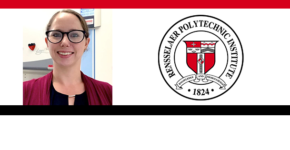
Elizabeth Blaber, Rensselaer Polytechnic Institute – Understanding How the Environment Affects Stem Cell Function
How our environment affects us can be complex. Elizabeth Blaber, assistant professor in the biomedical engineering department at Rensseelaer Polytechnic Institute, uses the harsh environment of space to provide answers. Elizabeth A. Blaber, Ph.D. is an Assistant Professor in the Biomedical Engineering Department at Rensselaer Polytechnic Institute (RPI), a Visiting Scientist with the Blue Marble…
-
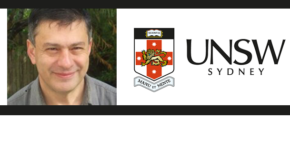
Robert Nordon, University of New South Wales – Making Blood Stem Cells on a Microchip
Stem cell research can be politically divisive. Robert Nordon, associate professor in the graduate school of biomedical engineering at the University of New South Wales, says a new way of making them may calm debate. I am an Associate Professor in the Graduate School of Biomedical Engineering, University of New South Wales, Sydney. I have…
-
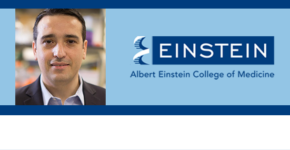
Evripidis Gavathiotis, Albert Einstein College of Medicine – Cell Death and Cancer Cells
How do we kill cancer cells that are resistant to the proteins that look to kill them? Evripidis Gavathiotis, associate professor of biochemistry at the Albert Einstein College of Medicine, explores a new treatment to get rid of these harmful cancer cells while leaving the healthy ones intact. Dr. Gavathiotis’ laboratory aims to elucidate and…
-

Pankaj Karande, Rensselaer Polytechnic Institute – Engineering Living Tissue for Transplantation
Can we make human organs in the lab? Pankaj Karande, assistant professor of chemical and bioengineering at Rensselaer Polytechnic Institute, explores new ways that science is pushing the boundaries to fill the organ donor gap. Prof. Karande joined the Chemical and Biological Engineering Department at Rensselaer in 2008. Before joining Rensselaer, Prof. Karande was a…
-
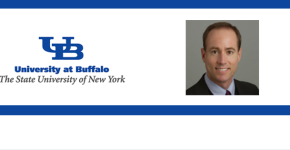
Blaine Pfeifer, University at Buffalo – E. Coli
Does E. Coli have a positive benefit to humans? Blaine Pfeifer, Associate Professor of Chemical and Biological Engineering at the University at Buffalo, explores this question. Dr. Pfeifer’s work seeks to influence cellular, metabolic, and process events required to produce new therapeutic products. As an example, he is studying how to engineer E. coli to generate…
-
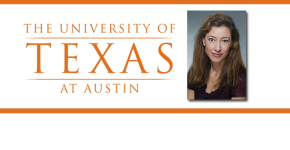
Jennifer Maynard, UT Austin – Outsmarting Whooping Cough
New insights into pertussis are helping to fight the disease. Jennifer Maynard, a chemical engineer at The University of Texas at Austin, is working to fight whooping cough. Jennifer Maynard is the Laurence E. McMakin, Jr. Centennial Faculty Fellow and an associate professor of chemical engineering at The McKetta Department of Chemical Engineering at The…
-
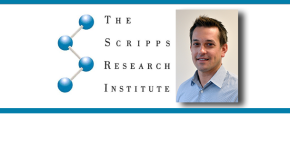
Dennis Wolan, Scripps Research Institute – Microbiotic Biology
There’s a lot of stuff happening in the human gut! Dennis Wolan, an assistant professor in The Scripps Research Institute’s department of molecular and experimental medicine, is working with the microbiotic enzymes to better understand our bodies and hopefully treat disease. Dr. Dennis Wolan received his Ph.D. from The Scripps Research Institute in X-ray crystallography…
